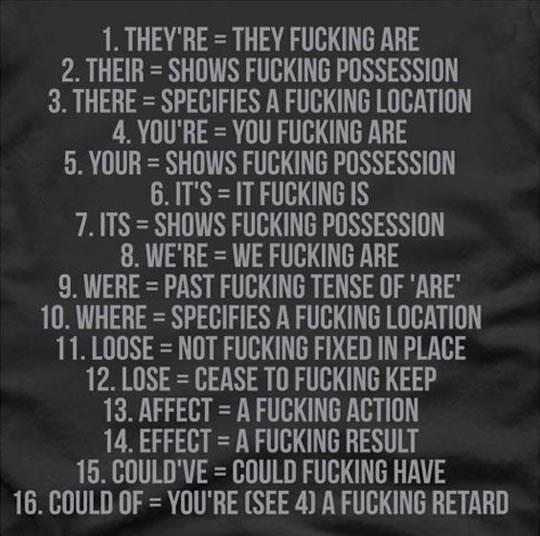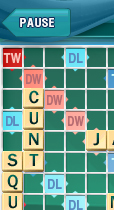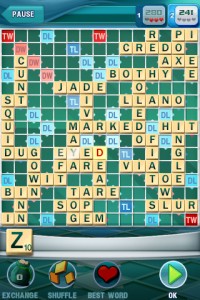Not Quite An Apology
Posted: Thu 3 October, 2013 Filed under: 1BEM, Cynicism, Literacy, People, Sweary, Thoughts, Words 2 Comments »One of the phrases that keeps on annoying me at the moment is the current ‘approved’ terminology for an apology
We’d like to apologise for [x]
Why does it annoy me? Because if you look at it, it’s not actually an apology. It’s a mealy-mouthed excuse. “We’d like to apologise for [x]” isn’t the same as “We are really sorry about [x]”
I know it’s probably only me that even notices this kind of thing, but regardless, it’s an annoyance.
If you’re sorry for something, say you’re sorry. Apologise. Don’t tell me that you’d like to apologise – because that’s not actually apologising. It might as well say “We’d like to apologise, but won’t, because well, fuck you”
Just say “Sorry”. Don’t wank around the bushes with it. Say you screwed up, apologise, move on.
Apostrophes
Posted: Wed 26 December, 2012 Filed under: Charm School, D4D™, Education, Literacy, Writing 1 Comment »One of the better explanations I’ve seen for using apostrophes and abbreviations. (And I didn’t write this originally, honest)

Maybe if it were taught like this in schools, people would remember it better.
Critical Reading
Posted: Fri 16 November, 2012 Filed under: Advertising, Creativity, Cynicism, Education, Food, Literacy, Pedantry, Thoughts 6 Comments »As has been observed many times over the years, I can be a really picky/pedantic bastard – particularly when it comes to spelling, punctuation, and literacy in general. And it’s true, I am all of those things.
Today I’ve been proof-reading a menu for the work Christmas Do (of which more at some other point) – and with some of the errors, had to check the original menu.
So – would you still go to a place whose menu has spelling errors? I realise that the typing and publication of the menu won’t have come direct from the chef, and will have been farmed out to someone on reception (or similar) – but really, if chefs / owners are so obsessed about control, wouldn’t that also extend to the menu, and how it represents the establishment ?
In this case, some of the spelling errors are pretty basic – Mascarpone , for example, is mis-spelled. In others, it’s the actual cooking techniques themselves, such as “Ballantine” instead of “Ballotine”. And I just find that a bit worrying – for if there’s that lack of attention to details in the menu, I can’t help but think there might be the same lack of attention when it comes to the food.
World Book Day
Posted: Thu 3 March, 2011 Filed under: Creativity, Domestic, Literacy, Writing 1 Comment » Today is World Book Day. If you’re not reading something, why not?
Today is World Book Day. If you’re not reading something, why not?
Scrabble
Posted: Sun 5 September, 2010 Filed under: Domestic, Geeky, iPhone, Literacy, Sweary 6 Comments »One of the addictions I do have with the iPhone at the moment is the Scrabble® App. It’s not perfect – it cheats, and uses some really dodgy Americanised (sorry, Americanized) words which drive me barmy. But it’s fun, and I’m playing it way too much.
Today though I had a small dollop of success – allbeit in a silly and sweary way.
Yes, the word ‘cunt’ in scrabble. And it was allowed! (Scored OK too…)
The full board here…
Litrucy
Posted: Sat 27 February, 2010 Filed under: 1BEM, Domestic, Education, Literacy, News, People, Thoughts Leave a comment »Via Margo and Phiala I came across this story about literacy in Americans, which says that in America someone reading 4-9 books a year is classified as an ‘avid’ reader, and that 1 in 4 [American] people read no books at all. As Margo says, I’m pretty sure I’ve seen similar figures for reading / book buying habits here, too although I can’t currently find a link or evidence of it.
As with Margo, I can’t really recall a time in my life that didn’t have books. My parents read stories to me every night, and that’s where I started learning to read, by learning the patterns the words made and linking them to the sounds they made as my parents read them. I was more than able to read by the time I started school, and I’ve been reading ever since.
I don’t have anywhere near as many books as I used to – if I’d kept all of them over the years, I could probably stock a decent-sized library. Even so, I’ve probably got around four to five hundred books all told, and they’re all the ones I’ll go back to and read more than once. Additionally I’m a regular visitor to the local library – on Herself’s persuasion, admitterdly – but normally get through about 10-20 books a month just through that. If I see books I want to read now – particularly new ones or new authors – I try to get them through the library rather than buying them outright as an experiment, which is what I used to do.
I can hardly even imagine only reading even 9 books a year. I mean really? One book every six weeks? Jesus.
Just as a current example, this week I’ve read (or am currently reading)
- Steel Beach by John Varley (in the car, reading at lunchtimes)
- The Shift by George Foy(also in the car, finished this week before starting Steel Beach)
- Dead and Gone by Andrew Vachss (at home, in the bedroom)
- Missing by Chris Mooney (also at home)
- Spider by Michael Morley (really really crap)
- The werewolf’s guide to life : a manual for the newly bitten by Duncan Ritch
- Left Hand of God by Paul Hoffmann (just about to start)
And that’s a quiet/slow week where I’ve been doing a ton of work as well. Even so, that puts me near the top end of the American average book level for the year within a week. I don’t honestly know how many books I read a year – on that level, it must be a couple of hundred per year.
But more to the point, if that’s my reading level, and the average number of books read per year in the UK is (hey, let’s be charitable) 20 then that still means there’s a whole bundle of people at the other end of the scale who are reading maybe one book a year, or less. And to me that’s really quite scary.

